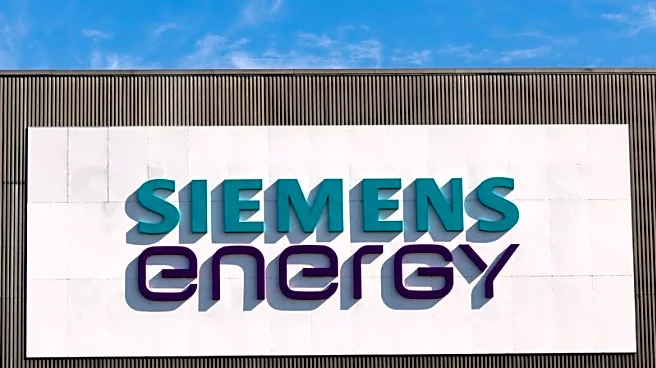What's Happening?
The Trump administration is reportedly contemplating a new annual approval system for Samsung and SK hynix, two major Korean memory manufacturers, to facilitate smoother machinery exports from the U.S. to their plants in China. This development follows the recent revocation of their Validated End User (VEU) status, which previously allowed them to export machinery without individual shipment approvals. The proposed system would require the companies to specify the quantities of machinery needed annually, rather than seeking approval for each shipment. This move aims to address concerns about technology leakage and equipment diversion to Chinese firms, as reported by Bloomberg. The revocation of VEU status had initially caused a dip in the companies' stock prices, but they have since begun to recover.
Why It's Important?
The potential shift in export policy is significant for the semiconductor industry, which relies heavily on the smooth flow of components and machinery across borders. Samsung and SK hynix are key players in memory manufacturing, and any disruptions in their supply chain could impact the availability and pricing of products like SSDs, RAM, and graphics cards. The U.S. government's actions reflect ongoing trade tensions and efforts to safeguard technological assets from being leveraged by Chinese firms. This situation underscores the delicate balance between national security concerns and economic interests, as the administration navigates complex trade relationships with South Korea and China.
What's Next?
If the new approval system is implemented, Samsung and SK hynix will need to adapt their logistics and forecasting to comply with annual export specifications. This could lead to more predictable export processes, potentially stabilizing their operations and stock prices. However, the companies may face challenges in accurately predicting their annual machinery needs, which could affect their production efficiency. Stakeholders in the semiconductor industry will be closely monitoring these developments, as they could influence broader market dynamics and international trade policies.
Beyond the Headlines
The broader implications of this policy shift highlight the ongoing technological arms race between the U.S. and China. As the U.S. seeks to protect its technological advancements, it must also consider the impact on global supply chains and the potential for increased costs in consumer electronics. This situation may prompt other countries to reassess their trade policies and technological collaborations, potentially leading to shifts in global alliances and economic strategies.











